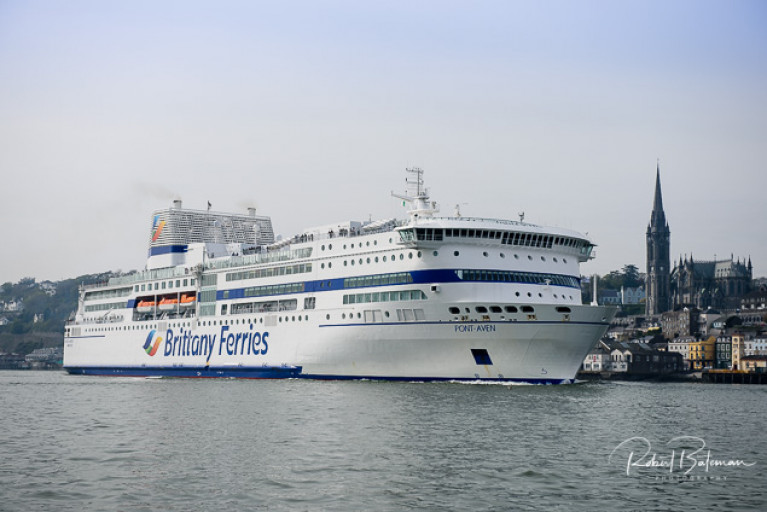Displaying items by tag: Travel 19 July
With non-essential international travel set to reopen for Ireland from 19th July, Brittany Ferries is today urging holidaymakers to factor in the many good reasons why ferry travel is the best option for travelling abroad this summer.
- Early Irish bookings already look promising but plenty of space still available
- No mingling in crowded terminals: drive on board where social distancing comes as standard
- North west France offers an array of different holiday options in unpopulated areas
The French ferry company, whose main passenger service in Ireland operates the Cork-Roscoff route, says booking numbers are looking positive with over 600 passengers due to travel from Cork on flagship cruise ferry, Pont-Aven on Saturday, 24th July. The operator says there is still plenty of availability for anyone looking to get away this summer.
 Pont Aven passes Roches Point in July 2021 Photo: Bob Bateman
Pont Aven passes Roches Point in July 2021 Photo: Bob Bateman
“We want to remind people of all the great reasons to travel by ferry this summer,” said Hugh Bruton, Brittany Ferries General Manager for Ireland.
“Taking the ferry means there’s no need to mingle in a busy terminal building, or arrivals hall, alongside passengers from multiple destinations. Drive on-board in your own car, then head straight to a cabin which is fed by fresh sea air. Step outside on deck, visit a bar, restaurant or shop, and do so while social distancing in safety and comfort. This is the modern ferry experience and it’s why we urge everyone to consider a sail-and-stay holiday in 2021.”
Roscoff offers a gateway to north west France and Brittany Ferries stresses that anyone concerned about holidaying in big cities or busy resorts, should be reassured that you will not be arriving in population centres, but rural regions characterised by sweeping beaches, coastal paths and ancient forests.





























































